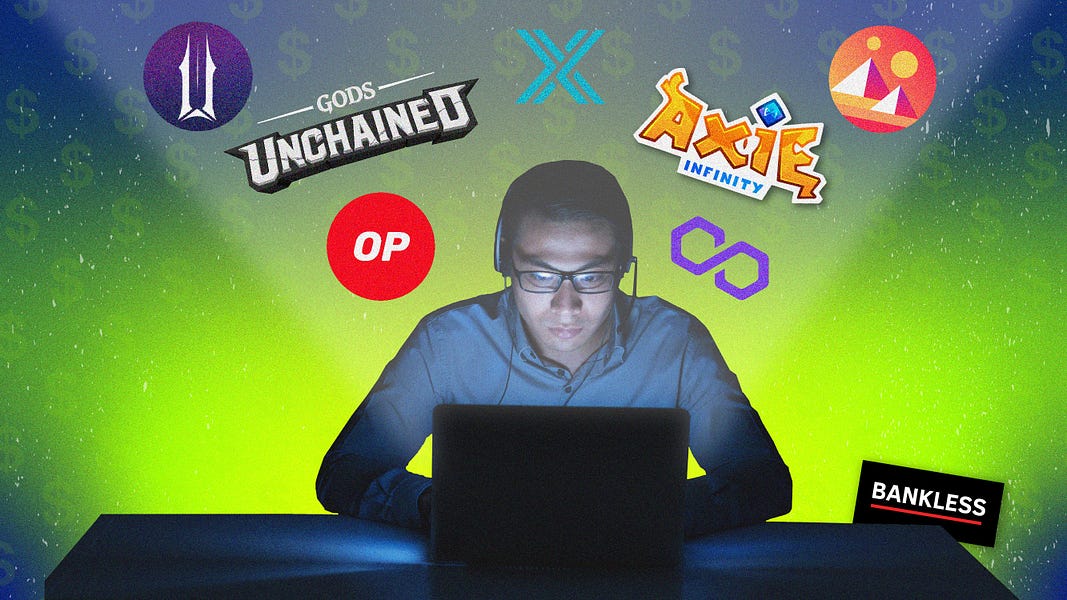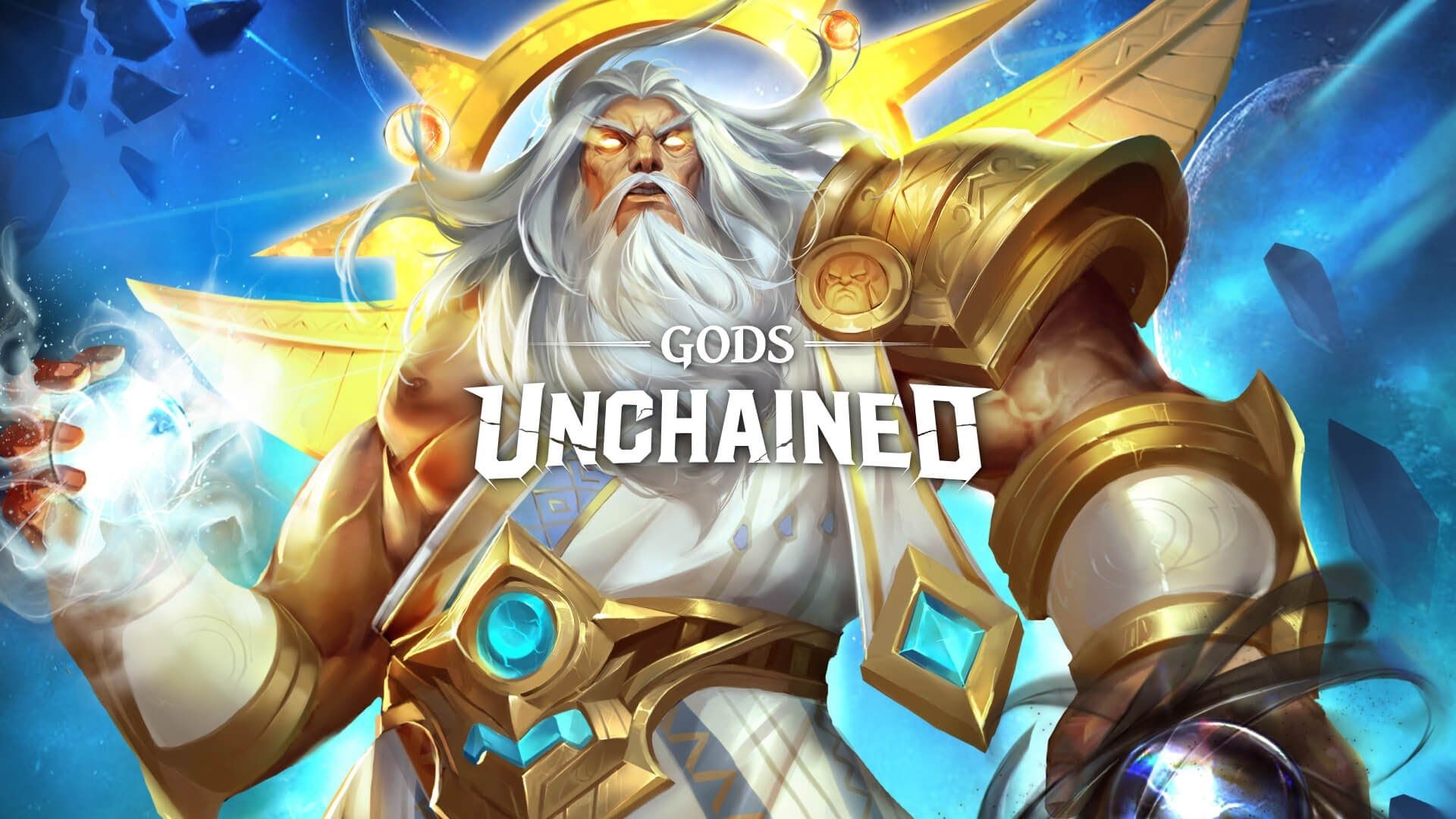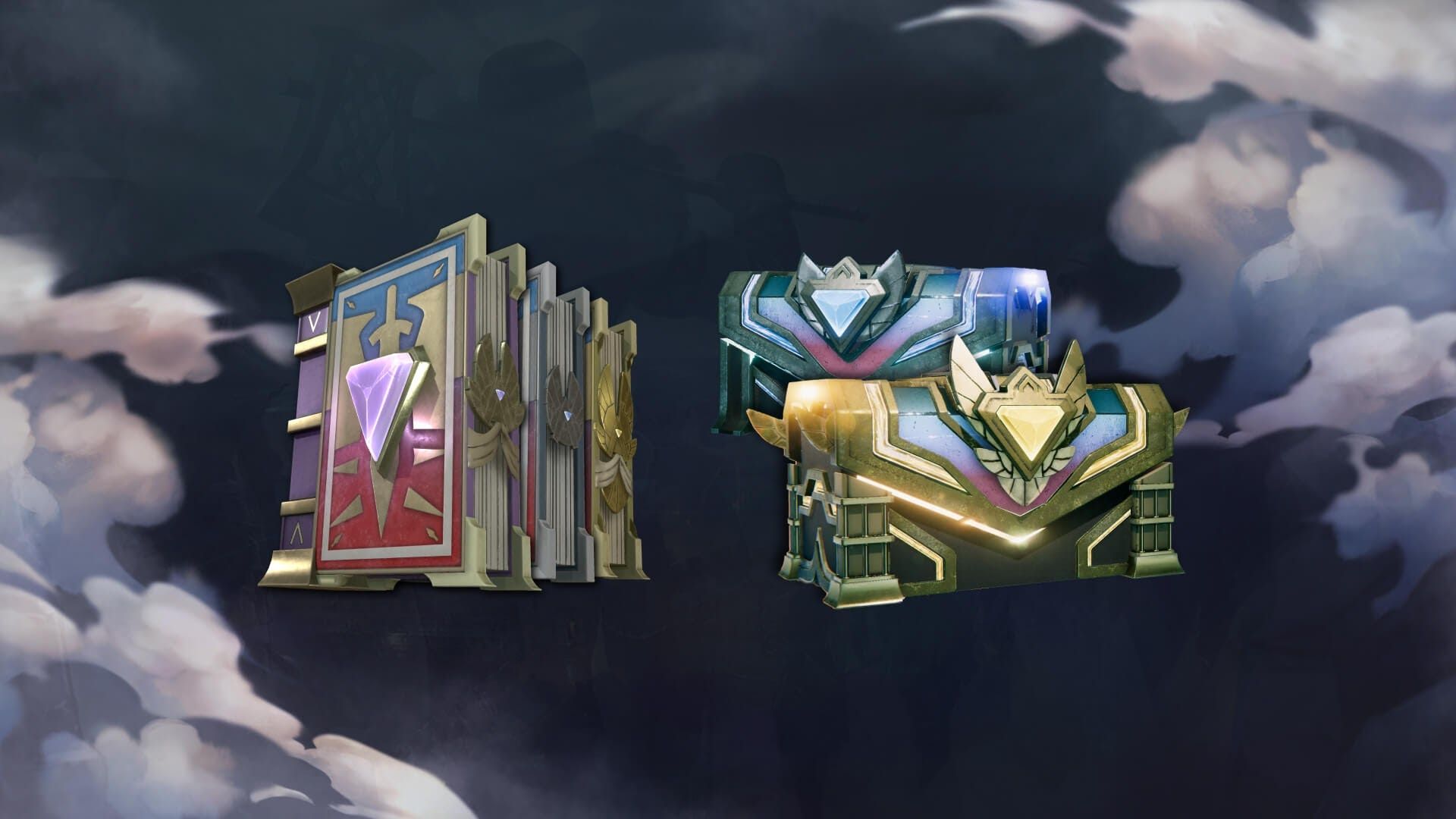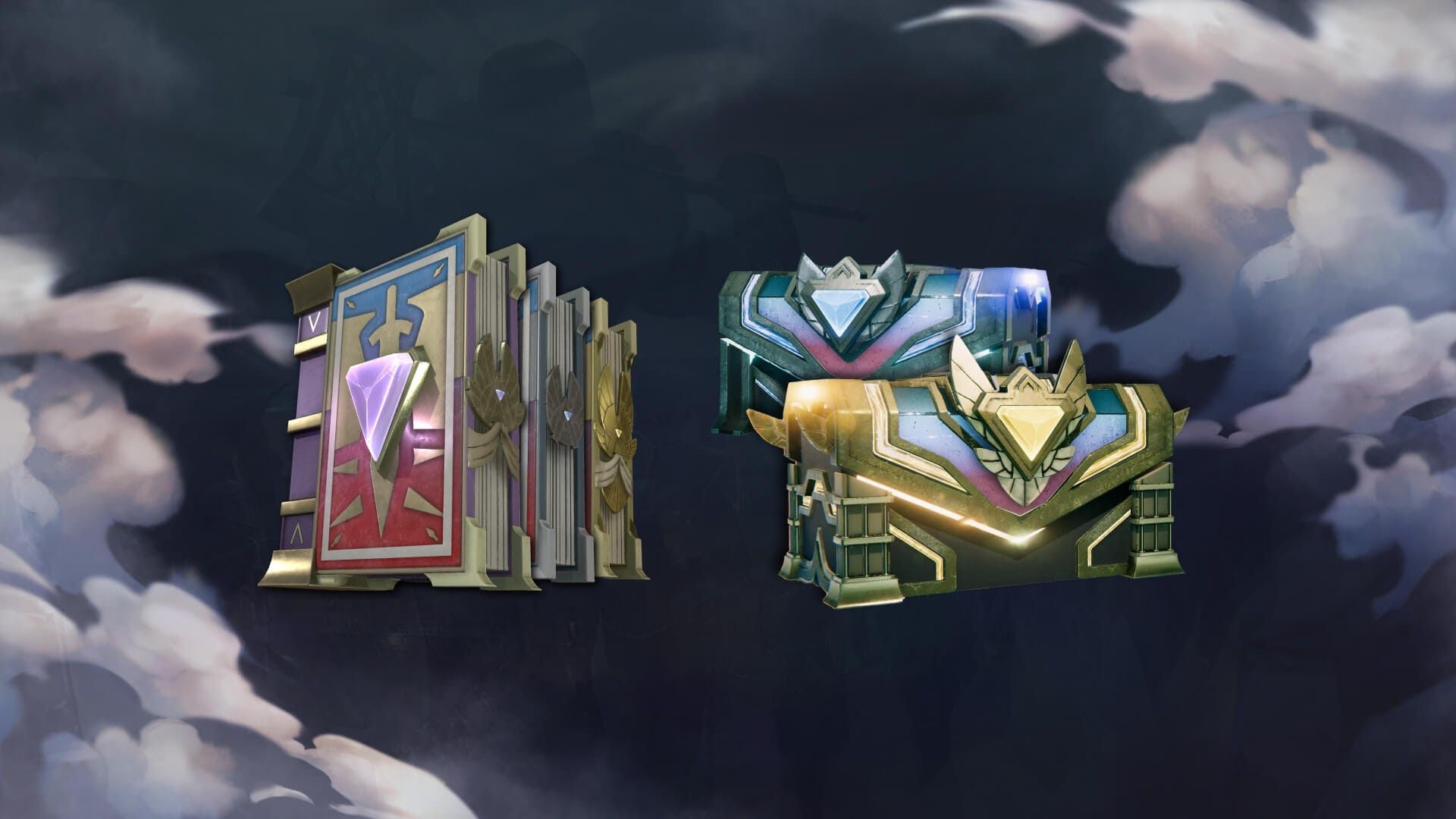Play to Earn is the Future of Gaming

Dear Bankless Nation,
Have you noticed? The shift from attract and extract to attract and reward?
Centralized institutions create lucrative incentives for people to use their products—great UX, sign-up bonuses, better technology.
But once our guards are down the profit-seeking cranks up. They create barriers to exit and entrap users in a walled garden. Then they extract maximal value from our coffers.
The gaming industry congregated around the same model, which means it’s just another industry that crypto can disrupt.
Crypto doesn’t do well with closed platforms. Composability and permissionless execution are fundamental values that we expect to see from the protocols we use.
In order to retain users, protocols cannot close their borders and force us to play ball. Instead, they must find proactive ways to keep users happy.
Chris Clay tells us how the crypto gaming industry will do it.
- RSA
P.S. Catch our recent episode where talk Play to Earn with Arianna Simpson.
Guest Writer: Chris Clay, Game Director of Gods Unchained: The former Game Director of Magic: The Gathering Arena, Chris Clay led MTGA from its troubled first playable release to a genre favorite that generated over $120M in revenue in its first year. He has spent his career pushing the boundaries of technology, from early pioneering in 3D character setup and design to laying the groundwork for massive multiplayer games at Turbine. He moved across the globe to join Immutable to continue to break new ground by building game economies that benefit both game creators and game communities alike in the NFT space.
Play to earn, play and earn, blockchain gaming. The names might change slightly depending on who you talk to, but the integral concept is the same. Gaming’s status quo is shifting, and the incoming paradigm is one that rewards players for spending time engaging with a game and its platform.
Moreover, the birth of L2 solutions is no longer just hopium for the masses. Yes, it’s provided a scalable way to interact with the Ethereum ecosystem, but more importantly for this particular write-up, it’s empowered play to earn gaming to become a reality.
Take an important pillar of traditional gaming enterprises: microtransactions. Microtransactions on mainnet are a painful experience; a typical $4.99 microtransaction quickly becomes a $34.99 transaction when gas fees are considered.
It simply doesn’t make sense to transact. Traditional gaming models just don’t work in this environment.
But that’s starting to change.

Enter Layer 2
Whether it’s Immutable X, Polygon, Optimism—whatever your flavor—each offers a solution to the exorbitant gas fees that plague Ethereum. Better yet, the implementation of these solutions finally allows for transactions of all value (from little to large) to be possible. Play to earn games can finally thrive.
But you may ask, what do microtransactions have to do with play to earn games? I’ll get into that, but first, we have to understand how the world of traditional gaming works.
What’s wrong with traditional gaming
Pay to win or freemium. These are both phrases you’ve likely heard if you’ve ever spent time gaming. In 2020, over $54 billion was spent on in-game assets. That’s a lot of money for people to put into cosmetics, accessories, or other assets that the users themselves do not own.
If you read the minuscule print in the massive terms and conditions of any large gaming corporation, you’ll spot lines that explain that the assets are only being licensed to the consumer. The company can take anything you purchased or acquired through play at its whim.
This is where the combination of crypto and gaming comes in to save the day.
Building on Ethereum gives real ownership to its users. If you purchase an NFT, it is truly yours to do as you please. Non-custodial asset ownership is a mind-blowingly recent concept that’s genuinely making the masses question the hows and whys of the status quo. Play to earn gaming combines the entertainment value of traditional gaming with the ownership and freedom that blockchains unlock.
When you put these two things together, you have a powerhouse that is primed to introduce the unlimited potential of decentralized applications to the world.
The Catalysts for Gaming 3.0: Play to Earn
Play to earn gaming is not dissimilar to proof of work. The ‘work’ in this instance comes from engaging with the game and its ecosystems, an action that creates value for both the product and its users. Put simply, do some ‘work’ (engage with the game), and you get rewarded for it.
Crypto assets are composable, meaning that the value earned as a reward can be kept inside the game’s ecosystem or extracted out of it as well. As an example, you can have a badass Gods Unchained card that wreaks havoc in the meta and brings you all the glory, thereby earning you more rewards, or you can take that card and go sell it on a third-party marketplace for other assets like ETH!
So, why has play to earn suddenly picked up steam? There are a few compounding factors. First, the increasing mainstream awareness of crypto has meant that more people are willing to dip their toes into the space. We saw this with DeFi summer 2020 and the NFT boom.
The second, the relentless menace that is COVID. On a not-seen-in-our-lifetime scale, there was a worldwide loss in employment and stability. People lost their jobs. They were looking for new ways to earn money. The possibility that they could earn money from playing a game was unfathomable, and as the concept began to gain speed, and now we’re seeing more and more adoption in the space.
The third (as I mentioned above) comes from the constraints of L1 having strangled play to earn gaming for a while now. Only very recently did scalable L2 solutions become provably functional, allowing people to truly experience what it’s like to extract value from a game. (A bit of shameless boasting here: but I’m pretty thrilled that Immutable X was able to lead the charge here, being the first of these to launch secured by Ethereum L1.)
How You Earn From Crypto Gaming

With all these wheels in motion, crypto gaming is kicking into gear—full steam ahead. But how and where can you play games and earn value? This answer is of course reliant on the particular game in question, but there are some common denominators across the board.
1. In-game assets
Traditional games give players the ability to earn or purchase in-game items, but these are almost always trapped in the user’s account. The difference with play to earn games is that players can trade, sell, and use these items in a noncustodial way. Let’s say you breed a ridiculously rare Axie, or pull a super-rare Gods Unchained card – a play to earn user has the non-custodial asset ownership which empowers them to say, “Hey, I’m going to sell this on a marketplace and put the earnings into my wallet of choice.” Boom. You just made money from gaming.
2. Game related tokens
We’re also seeing a rise in gaming tokens—GODS, AXS, GHST, MANA, ILV, etc. These tokens are all designed to bolster their game’s economy and simultaneously reward their users for their engagement. For the most part, you can earn these tokens in-game.
Then whether it’s an in-game utility that empowers users to create higher-value assets, staking rewards, or external composability, these tokens are yet another way players can extract value from their time spent playing the game.
Look at the forge in Gods Unchained for example: not only does the GODS token have external composability, but it will also be used in-game, in tandem with the flux currency to fuse non-NFT assets into NFTs. These assets can then be taken to be sold, traded, and bought between users.
3. Content Creation & Education
This one is not directly from the game, but it’s an incredibly valuable piece of the gaming economy. People need to understand how to use these games. Whether it’s educating people on how to create wallets, what signing transactions actually means, or figuring out the best way to explain decentralized wallet ownership to people who’ve never dabbled in the space before, there are common obstacles.
For an average gamer with no experience in crypto, the whole thing might come across as downright terrifying. Everyone in the space needs to continue to work to remove these roadblocks to adoption so that everyone can experience the benefits crypto games have to offer. There’s a massive opportunity to help the next wave of users onboard into this emerging economy. Who knows...you could be the next PewDiePie.
The Start of Something Big
With all of this excitement above, I do want to touch on one point: I truly believe that we’re only brushing the surface of the potential of play to earn gaming.
It’s so early in its implementation, and I believe that the success we’re seeing across the industry now is only a tiny slice of what’s to come. I’ll bring up the NFT boom example again: we saw people scoffing at the idea of digital art, music, assets, but just as the laughing began, interest started to skyrocket.
As people came to understand the inherent worth in NFTs and true asset ownership, there was not only crypto-industry interest, but it broke into the mainstream world.
The day I saw Beeple NFT news on CNN was the day I knew that the world as we know it is changing and that it’s up only from here. I truly believe that the same thing is relevant with crypto gaming: L2s have just started functioning, so we’re at the beginning of what’s going to be a complete gamechanger to the gaming industry. Like all new technology, there will be initial waves of resistance, but once the mainstream public is aware of the scalable offerings, through news or marketing or just a really fun game, I believe the narrative will change and mass adoption will begin.
A huge reason I left the traditional gaming industry behind to pursue a career in play to earn gaming was that I truly believe in the importance of bringing the accessible earning potential of crypto to millions, in a familiar, entertaining format. With my gaming industry experience, I genuinely can’t wait to be able to reverse the current status quo and watch gamers have that penny-dropping moment of “I can actually own my assets, I can buy/sell/trade without the overlords of the corporations watching my every move, and I can earn real-world value just by playing a game – something that I was going to be doing anyway?!”
Seeing that moment of realization in even a small proportion of the population that we have now has hardened my resolve. I want to make sure that this concept goes worldwide.
What the future of crypto gaming looks like

A question that I've been asked several times, and one that I've asked myself on countless occasions is: What will play to earn gaming look like in the next year?
As with anything crypto-related, the possibilities are endless but here are my two cents: From the existing play to earn games, we’re going to see even higher quality gaming experiences. As we know, humans are always looking for the next engaging, more exciting thing. Companies are going to have to up the ante to truly compete with AAA gaming experiences so that users don’t have to choose between game quality vs value able to be extracted.
If this comes to pass, the L2 solutions these games are integrated with are going to be crucial to their next leg of success. The more accessible these solutions become, the more wallets, tokens, games they support, the more ingrained the experience will become. I envisage a future where gamers don’t even realize that they’re hooked up to an L2 solution within their favourite game and that it all happens at face value, making the interactions frictionless, and mass adoption much easier.
So what’s next in my opinion? I believe that over the next twelve months giant gaming companies are going to stick their foot in the play to earn door. I’m no prophet, but I don’t think they’ll waste any time getting into the market.
With the already established play to earn games in the space, we’ve got a head start.
What Gods Unchained (for example) has, is readily built game economics that caters to the crypto industry as well as traditional gamers. Alongside that, we’ve already formed a deep integration with a scaling solution to ensure we don’t run into any issues from this perspective moving forward. I do think these bigger corporations are going to need to upskill their staff ridiculously fast in order to reach the same industry knowledge and understanding that those already in it have. Once they do, I believe it will result in that mass adoption I touched on earlier, and a flood of new play to earn users into both games of their offerings, and already existing play to earn offerings.
One door that I don’t think has been fully opened by play to earn gaming yet is the DeFi potential of the space.
For the more crypto-savvy in the ecosystem, this will increase their earning potential and therefore result in more interaction and liquidity. To be able to take a gaming token earned in-game, just through time spent, and put it into a liquidity pool for passive earnings is something that I think will bolster the ecosystem even more (the SLP-ETH Uniswap V3 pool is a great example).
Rightfully so, DeFi applications have been compared to financial games. Although the space rapidly evolves the core principle is parallel to play to earn where the user performs some sort of work or takes on a variable risk and can then be rewarded for it. Combining the multisensory nature of gaming with these economic games is going to be a major catalyst for the next wave of adoption. As well as a shift in the traditional balance between gamers and game creators. In this new world, everyone can benefit from the game’s success, and that simply isn’t true today.
Play to earn gaming is here, and it’s here to stay.
I’m proud to be a part of this space, and I can’t wait to see what’s to come.